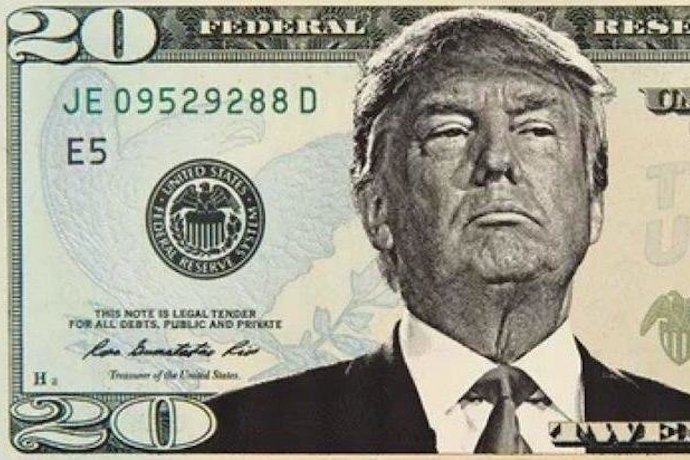Please feel free to ignore the economists and pundits who like to say that Wall Street is not the ‘real’ economy. That old saw is false in at least two ways. Members of the investor class wouldn’t have been the only real “winners” throughout the past decade were it not for the increased financialization of the real economy; in addition, financial markets tend to predict with reasonable accuracy the shape of the real economy of the future. For example, despite some ongoing volatility, Nasdaq shares remain strong in relation to other indexes because it’s obvious to investors that tech will play an even more central role in the post-Covid world.
If the real economy of the future looks grim for the vast majority of Americans—i.e., for those who aren’t significantly invested in stocks and bonds—Wall Street isn’t worried. The smart money predicts that corporate profits will do just fine as jobs are further degraded in a variety of ways. As mentioned, investors are perfectly fine with the increasing power of the Big Five tech giants; they like what can be done by workers who no longer need to report to offices but whose output can be closely monitored remotely. And yes, investors understand that the pandemic will damage or entirely eliminate certain sectors. But that’s okay, too, as long as the Federal Reserve is standing by to provide unlimited long-term assistance to big capital even as the losers drop away.
I say all this to make the point that the new normal—with pain and misery at the bottom and staggering wealth at the top—is really the old normal of this country’s uniquely race-based form of capitalism. The central fact here, and one that we were never taught in school, is that unpaid or very low-paid work amounts to regression to the mean (in both senses of “mean”) in an American culture profoundly shaped by slavery. White working class anxiety and rage constitute the historic and ongoing response to this reality. White insecurity is directly tied to the unspoken fear of experiencing the coerced labor and/or bottomless misery experienced routinely by African Americans and by the fear that African Americans might actually gain ground, as Carol Anderson brilliantly documents. This nexus becomes blindingly obvious at certain junctures (e.g. 1863’s explosion of anti-Black violence from Irish workers who saw both enslaved people and free people of color as their economic competitors). But the nexus is always there. Not for nothing was the Trump campaign slogan easily construed to mean “Make America White Again.”
As Sven Beckert and Seth Rockman remark in their introduction to Slavery’s Capitalism: A New History of American Economic Development, the coerced labor provided by enslaved people was not some kind of regional economic cul de sac—i.e., some historical outlier—but was rather the “interstate highway of capitalist development” throughout the United States at the crucial time when this country rose to economic dominance. American chattel slavery—an institution indeed “peculiar” to these shores—was by no means an inefficient system that would have died out naturally, as many economic historians once asserted; rather, American slavery was the crucible of everything we think of as modern and rational in respect to its role in creating sophisticated accounting and legal systems along with new concepts of arbitrage, liability, and risk. The system of organized cruelty was highly efficient.
[For this reason it mystifies and infuriates me that none of the lead pieces in the new installment of “The America We Need” in the Times mentions race as the primary driver of this ugly aspect of American exceptionalism. This piece by senior editor Kevin Delaney is typical: he mentions how those clinging to the bottom rungs of the economy are disproportionately Black and brown, but that’s all. Perplexing that the Times could blunder badly here, given the overall wokeness of its “1619 Project.”]
The ruthlessness of the U.S. labor market is of course matched by the cruelty of a near-nonexistent social safety net that remains a source of horrified wonderment to observers from other developed countries. Yet again, the reason is racism. As New York Times economic journalist Eduardo Porter points out in American Poison: How Racial Hostility Destroyed Our Promise, the social supports created in the wake of the Great Depression and World War II were reserved exclusively for whites. When African Americans finally began to receive a paltry share, the programs that were seen to be benefiting African Americans came under intense and bitter attack. Liberals rightly demonize Richard Nixon for playing the race card while forgetting that it was a liberal Democrat—Bill Clinton—who achieved the long-sought GOP goal of ending “welfare as we know it.” Today you can chart exactly how miserly each state’s Temporary Assistance to Needy Families (TANF) grants will be by charting the percentage of TANF recipients who are African American.
For over 400 years, the vast majority of African Americans have been kept down at the very bottom in order for the American System of cheap labor to function. Although Henry Clay opposed slavery in theory, the need for this ongoing subjugation was most certainly in the mind of The Great Compromiser who coined the term “American System” during the expansionist years of ‘Indian removal’ and a related Second Middle Passage that took over one million people in shackles from the Chesapeake to the rich bottomlands extending from Georgia to Louisiana. Clay’s insight remains true today: the American System depends on maintaining Black misery so that white workers can feel slightly less miserable while the real wealth flows upward.
And what has white American Christianity had to say about any of this? In making and marking a fundamental distinction between the “deserving” poor and the “undeserving” poor, white Christians have differed in no significant way from other whites in treating Black people as undeserving by definition. The default white Christian attitude toward all who are poor is contempt; shame rather than succor is what a Calvinist-inflected religious mainstream has usually had to offer those whom Jesus called “the least of these.”
As for wealth flowing upward on account of a racism pitting whites against Blacks in the labor market, the primary white Christian response has always been that wealth is the signifier of God’s grace, whereas those who suffer deserve to suffer. Yes, of course there were also white Christian Abolitionists and labor reformers and anti-poverty activists at every period of American history. But I grow weary of apologists who never cease trying to portray the decent ones as broadly representative of white Christians. The decent ones deserve honor, but they were never representative of a faith tradition that on the whole has been more than happy to sanctify the American System of white male supremacy and cheap labor.
No one disputes that the current upsurge in anti-racist activism is about police violence. But behind that everyday horrific violence lies the equally horrific shadow of an economic violence that is constitutive of the American Way—and that has been constitutive since forever. Most thought leaders among the current moment’s insurrectionists—a formidable assembly—understand that police violence, let alone the latent violence expressed in our country’s maintenance of an enormous lethal military force, cannot really be addressed without also addressing the fundamental social organization of a country so thoroughly steeped in the poison of white supremacy.
A winner-take-all economy won’t be changed without a power struggle that is, if anything, much more fierce, much more sustained, and (most of all) much more visionary than the 19th century struggle for Abolition. Today’s white allies would do well to recall how their predecessors in the Abolition cause, very much including the “decent” white Christians, completely abandoned African-American aspirations for full equality within a few years of the bloody Civil War’s end. And why did these whites “move on” so quickly? Because there was so much money to be made in the first Gilded Age and because the reintegration and rehabilitation of the former Confederate states could contribute to that project.
If you are one of today’s activist allies who thinks that doing better today than those feckless Abolitionists did back then amounts to a low bar, please think again—and don’t flatter yourself. There are no shortcuts and no quick fixes to be had in meeting the challenge we face now. It’s going to be a revolution—a new social contract with new power arrangements—or nothing. Beware of any faith leader who tells you otherwise. God is once again “trampling out the vintage“: nothing less than the complete overthrow of white supremacy and its systemic manifestations will suffice.





